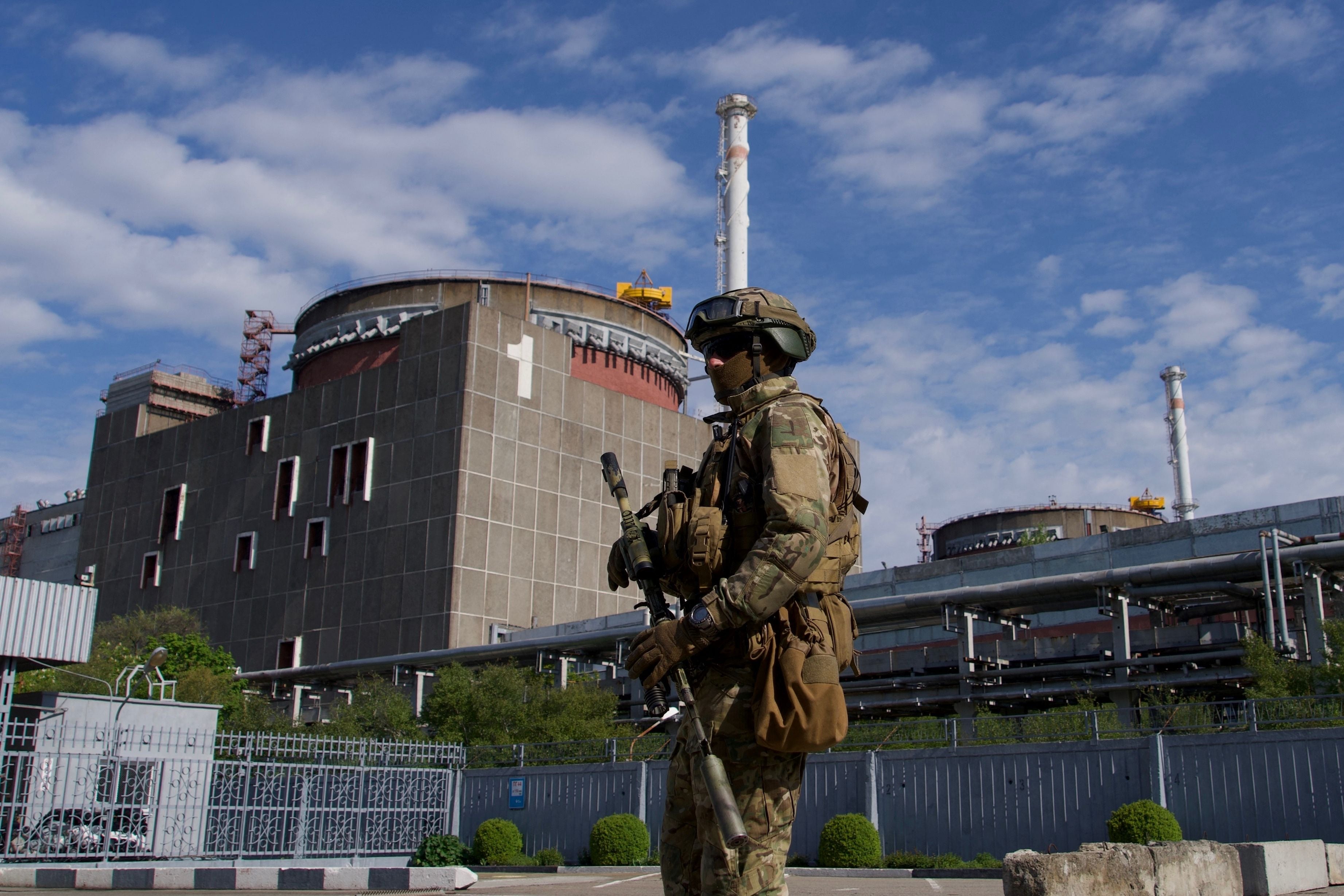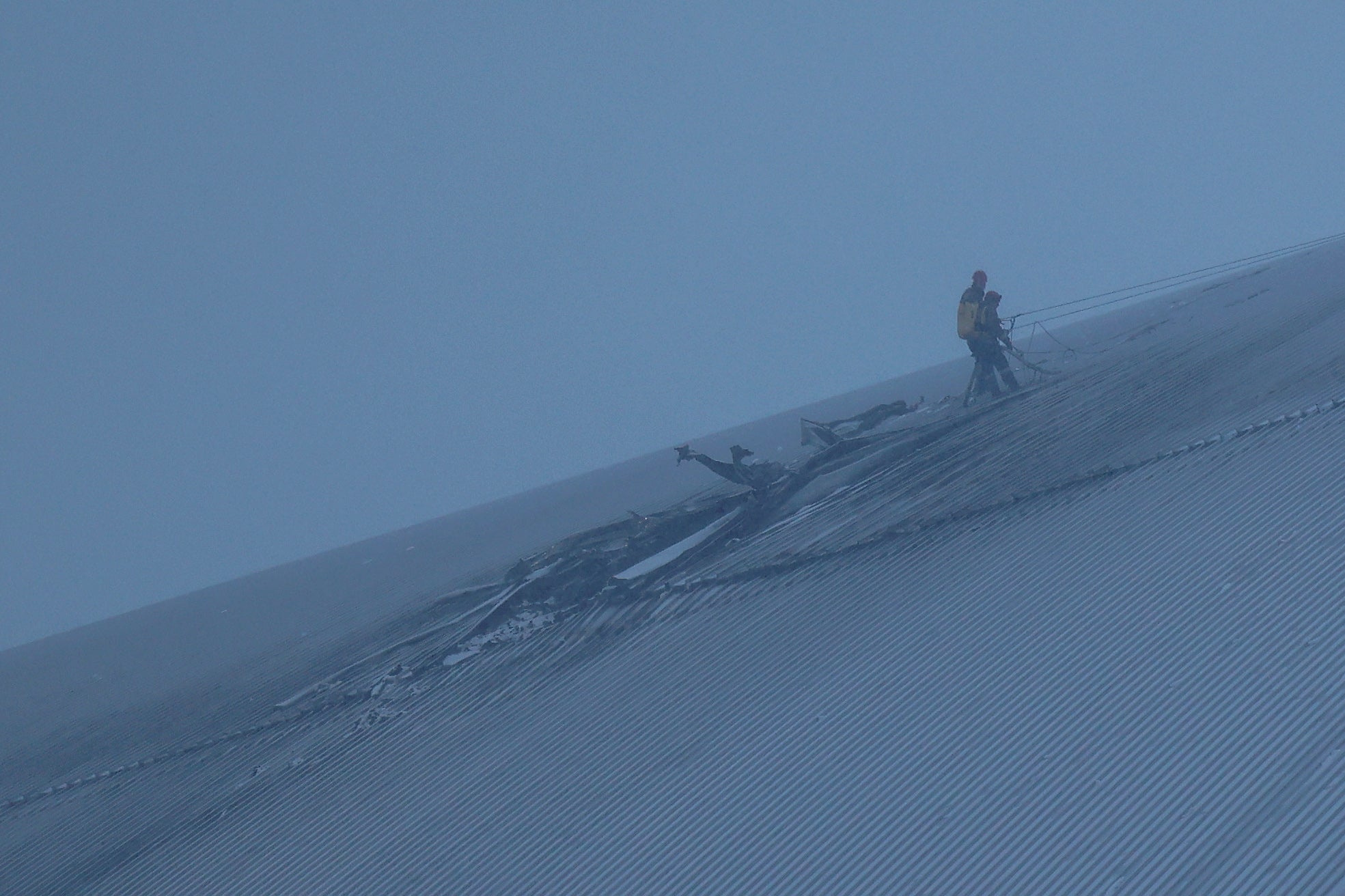Nuclear disaster in Ukraine is only a “matter of time” away as long as the international community fails to take tougher action against Russian recklessness, an expert has warned.
On Monday three years will have passed since Russian president Vladimir Putin’s forces started their full-scale invasion of Ukraine. In that time, Russian carelessness and the weak response from the international community brought Ukraine’s power plants to the brink of crisis, argues historian Serhii Plokhy.
When the war began on 24 February 2022, explosions erupted near the Chernobyl power plant in Ukraine’s northern Kyiv region. Earlier that day Russian troops had entered from the Belarus border to the north. Columns of Russian military vehicles moved into Chernobyl, which fell under Moscow’s control.

“This recklessness and disregard for life has turned out to be a feature of the entire war,” says Mr Plokhy, who tells the story of the occupation of Chernboyl in his 2024 book Chernobyl Roulette. “This is basically the way how Russia fights the war.”
After another Russian strike on the Chernobyl power plant earlier this month, Mr Plokhy has warned that a crisis at one of Ukraine’s nuclear power stations is becoming increasingly likely.
A fire broke out after the drone struck a protective shelter surrounding Chernobyl’s damaged nuclear reactor. Moscow denied it had struck the site, claiming its military does not attack nuclear infrastructure. But as the war drags on we are edging towards nuclear disaster, in the view of Mr Plokhy.
“We’re getting closer and closer to possible disaster as attacks now continue on Chernobyl, and the war is going on in the vicinity of Zaporizhzhia nuclear power plant,” he says.

Zaporizhzhia nuclear power plant, the largest in Europe, has been occupied by Russian forces since March 2022. Mr Plokhy explains its use as a shield for Russian forces from which they can attack the nearby city of Zaporizhzhia – in the knowledge that Ukraine wouldn’t risk major counter-strikes near the plant.
As the Trump administration pushes for a ceasefire deal and hints that Kyiv should accept some of Russia’s terms, the debate over whether Ukraine should give up territory to Moscow, including Zaporizhzhia power plant, rages on.
For Mr Plokhy, a deal involving Russian control over the power plant would not produce a durable peace. Russia would remain too close to key Ukrainian cities – including Zaporizhzhia city – and Kyiv would seek to push the Russians further away.
But he does not believe Ukrainian forces should use military force to remove Russians from the plant. “By no means [should] direct attack on the plant [be carried out], because then we are playing Russian roulette. I don’t think this is the way to proceed,” he says.
-members-examine-Zaporizhzhia-Nuclear-Power-Plant-in-Enerho.jpeg)
The 2022 occupation of Chernobyl should serve as the blueprint, with Ukrainian forces encircling the site, threatening supply and communication lines until the Russians have no option but to leave he says.
Western countries, in Mr Plokhy’s view, have failed to effectively respond to Russia’s rash behaviour around nuclear sites. Substantive action is necessary to prevent disaster, he explains, because to “have a major accident, you don’t need even to hit a nuclear site”.
“It is a matter of time [until nuclear disaster] if there is no response from the international community. If there is no consolidated response from the world as a whole, then there will be escalation. It’s very simple. No response, then it’s accepted, then this is the norm.
“It is basically saying OK to possible nuclear disaster – if not nuclear war.”

The 2022 Chernobyl occupation, which lasted for five weeks until Russia withdrew from the Kyiv region in order to focus its operations on the offensive in the east, “should have, but didn’t” serve as a wake up call about Russia’s willingness to play fast-and-loose around nuclear sites, he adds.
Mr Plokhy believes sanctions on Rosatom – the Russian state energy cooperation which has been involved in the occupation of Zaporizhzhia power plant and whose boss last Wednesday said the site could supply electricity to Russian-occupied Crimea – should be “very seriously considered”.
Moscow needs to see a “very strong message coming from the US, Europe and China… that this is unacceptable”.
A new international convention is needed, Mr Plokhy argues, in which the International Atomic Energy Agency – or another institution – is empowered to protect nuclear sites during a period of war.


